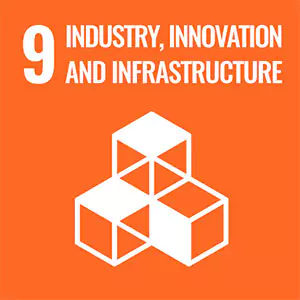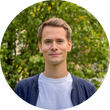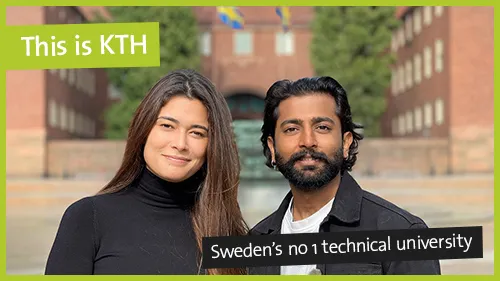MSc Software Engineering of Distributed Systems
The master's programme in Software Engineering of Distributed Systems provides students with advanced knowledge for building distributed software applications that operate on various devices, from cloud servers to smartphones. Students will explore this rapidly evolving field through specialisation in software development or data analysis. Graduates have expertise in cutting-edge methods and technologies in distributed software systems and are highly demanded by the industry.

Software Engineering of Distributed Systems at KTH
The devices in which distributed software applications may operate range from cloud servers to smartphones. New technological developments create considerable demand from industry and for engineers who can design software systems utilising these developments. This master's programme is an educational response to such industrial demands. It provides you with state-of-the-art knowledge of the field, develops your practical skills to meet current industry requirements and enhances your ability to adapt to the new developments of tomorrow's technology.
The programme offers two tracks: the Software track and the Data Science track. The Software track emphasises software development courses, while the Data Science track focuses on data analysis courses.
The programme consists of 60 ECTS credits of mandatory courses, including the final degree project, and 60 ECTS credits of elective courses. Of these, 30 ECTS credits must be selected from your track’s list of recommended electives, allowing you to shape your studies around your interests. In the final semester, you will focus entirely on your degree project. To support this, the faculty provides a curated list of suggested thesis topics. However, many students choose to collaborate with industry partners, either in Sweden or internationally, while others take the opportunity to complete their project at a university abroad. Your choice of project often depends on whether you are aiming for a career in industry or planning to pursue research.
This is a two-year programme (120 ECTS credits) given in English. Graduates are awarded the degree of Master of Science. The programme is given mainly at KTH Campus in Stockholm by the School of Electrical Engineering and Computer Science (at KTH).
Courses in the programme
The courses in the programme cover topics such as distributed systems, software engineering, distributed artificial intelligence and intelligent agents, data science.
Courses in the master's programme in Software Engineering of Distributed Systems
Future and career
Since the programme is oriented to educate software engineers with a comprehensive knowledge of current advanced methods and technologies in distributed software systems, opportunities for graduates to find a job are extensive. The programme qualifications allow you to work in a multitude of companies developing or maintaining software, and this is a vast market. Graduates work in companies such as Ericsson, Spotify, Google, Nasdaq, Netlight, Scania group and SEB. Many students have been offered permanent positions either in Sweden or abroad, even before graduating. Feedback from graduates shows that they appreciate the knowledge of modern technologies they acquired through the programme, which enables them to be very competitive in the labour market. Many have gone on to become key employees in their companies by promoting these modern technologies. Most common career paths among graduates are software developer, enterprise architect, consultant, entrepreneur, project manager, researcher and business developer. Graduates are also well-prepared for emerging fields such as edge computing, blockchain-based distributed systems, and AI systems orchestration, keeping their skills relevant as the industry evolves.
A large number of graduates also target an academic career, and many of them have proceeded to doctoral positions in well-known universities all over the world.
Sustainable development
Graduates from KTH have the knowledge and tools for moving society in a more sustainable direction, as sustainable development is an integral part of all programmes. The three key sustainable development goals addressed by the master's programme in Software Engineering of Distributed Systems are:



Quality Education
The programme provides a stimulating international environment in which students from countries all around the world collaborate on common subjects; the approach we take in teaching the programme creates a solid basis for supporting life-long learning.
Industry, Innovation and Infrastructure
In the programme, we underline innovation factors as an essential component of progress in the software industry; building reliable infrastructure requires expertise in software technology that we teach as a vehicle for its development.
Responsible Consumption and Production
The programme underlines digitalisation as an approach to responsible consumption that includes reduced resource consumption (paper, for example) and responsible energy consumption.
Faculty and research
The research goal of the department is to continue strong research in fundamental aspects of software and computer systems, central areas within Computer Science, with a focus on cloud computing, service computing, social networks, time-aware systems, data science, and applied AI, as well as Software Engineering.







